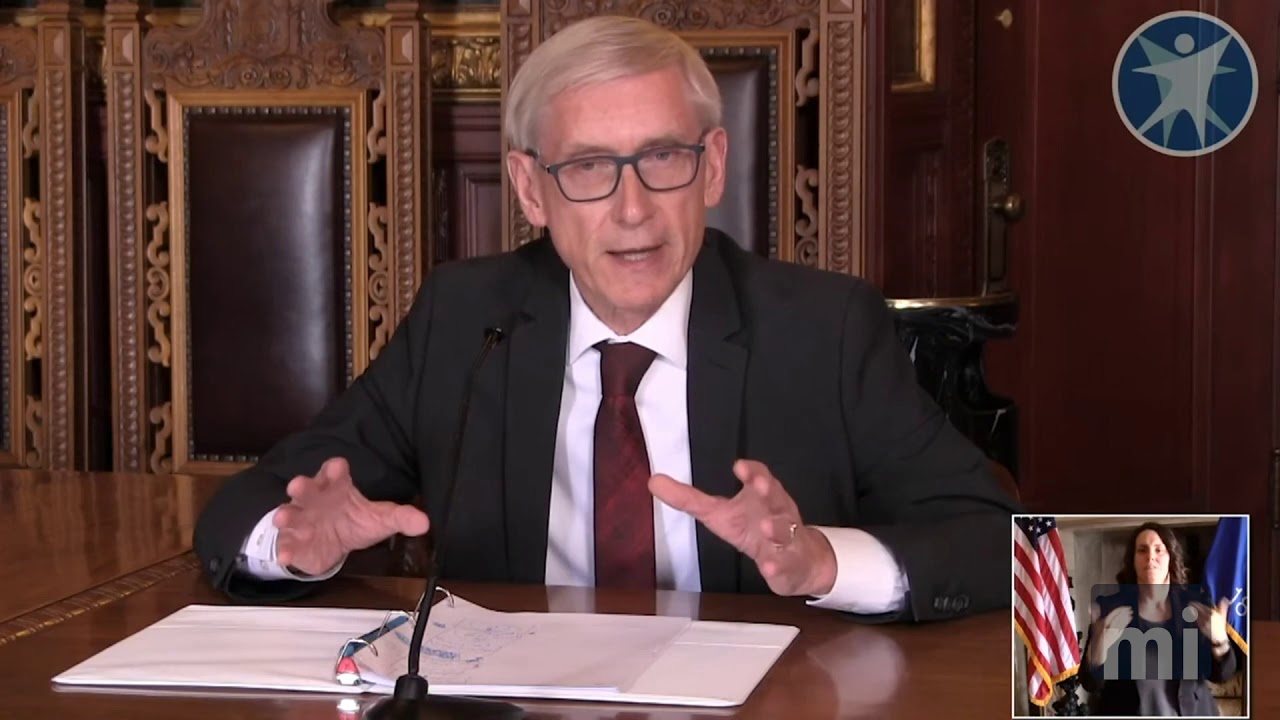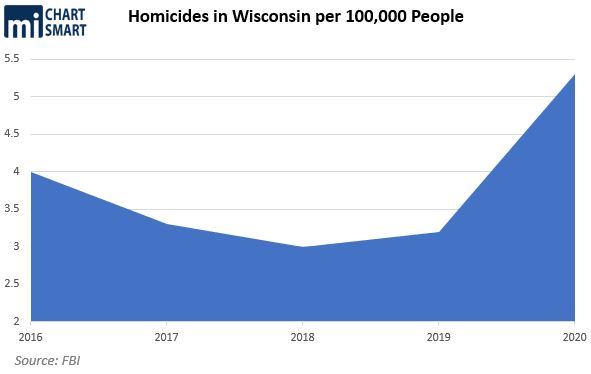
Dan O’Donnell reports on the lengths Governor Evers has gone to reduce Wisconsin’s prison population, a move that has had disastrous consequences.
Oct. 12, 2022
Perspective by Dan O’Donnell
Four years ago, then-gubernatorial candidate Tony Evers made the halving of Wisconsin’s prison a central part of his campaign.
“This isn’t about being soft on crime,” he said during a Democratic primary debate. “It’s being smart on crime.”
It wasn’t, as anyone who has been paying attention or even conscious over the past four years will tell you. Evers and his fellow Democrats’ aggressive pursuit of non-prosecution; lenient, almost non-existent sentencing; and a reckless, scandalous parole program that borders on insanity has sent the crime rate soaring to previously unseen levels.

In Milwaukee, for instance, the homicide rate has risen 128% since Evers took office. In just the past six days, a 12-year-old girl was brutally murdered and a 12-year-old boy was critically injured in a shooting. A child is now the victim of a homicide in the city every 13 days. Someone is shot every nine hours.
Suddenly Evers isn’t nearly as vocal about his work in getting criminals out of prison as he was four years ago. In fact, his Parole Commission had to be sued before it released public records on just who has been let out this year.
Wisconsin Right Now reports that those records reveal that over the first five months of 2022, the Parole Commission was releasing an average of two rapists or murderers per week. Some of them were even released after Governor Evers very publicly intervened to stop a particularly egregious parole decision.
In May, the Parole Commission granted release to Douglas Balsewicz, who viciously killed his wife in front of their two young children. When he was sentenced, the judge made a note to future parole boards that Balsewicz was and would always remain far too dangerous to ever be released. The Parole Commission ignored this and released him anyway, enraging the family of his victim, Johanna Balsewicz, to blast the decision in the media.
Evers, fearing a devastating election-year controversy, overruled the Parole Commission and then, when the outrage didn’t die down, demanded the resignation of Commission chairman John Tate a month later.
But the flood of paroles didn’t stop. On the same day Evers intervened in the Balsewicz case, the Department of Corrections freed Frank Penigar after the Parole Commission granted his release following a 1996 conviction for beating and stabbing his aunt to death.
Four days after that, the Parole Commission granted parole to a man who, according to Wisconsin Right Now, “snatched a University of Wisconsin-Eau Claire student off the street and raped her in a horrific stranger attack that left the victim scarred for life.”
Since taking office in early 2019, the Evers Administration has released 833 inmates on discretionary parole, a number that includes 270 murderers and attempted murderers as well as 40 child rapists. 16 of them have already reoffended even though they have been out of prison for a maximum of just three years.
A child is now the victim of a homicide in Milwaukee every 13 days. Someone is shot every nine hours.
This has been such an embarrassment for Evers that his Administration even violated Wisconsin’s Open Records Law to keep it from the public. Yet this is merely the most visible of Evers’ and his fellow Democrats’ efforts to cut the prison population in half. A far more devastating one has been the refusal to prosecute crimes.
The Milwaukee County District Attorney’s Office, with the strong approval of the Governor’s office, refuses to prosecute more than 60% of felony cases that are referred to it. For years, District Attorney John Chisholm has bragged about his use of alternatives to prosecution such as deferred prosecution agreements even in the case of violent crimes, but with Evers in office, he seemed even more emboldened, as the number of crimes his office didn’t prosecute rose by 10% from 2019 to 2020.
Needless to say, if crimes aren’t prosecuted, then criminals can’t be sentenced to prison and the prison population will necessarily decrease. But so too will public safety, and it has—dramatically—because of the policies Evers has championed.
He just doesn’t want to talk about them anymore.
